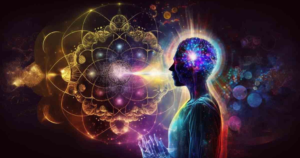Harnessing the Power of Forgiveness and Reconciliation for Mental Wellness
Introduction
In the fast-paced and often stressful landscape of modern life, mental health challenges have become increasingly prevalent. Amidst the search for effective ways to foster mental well-being, the ancient Hawaiian practice of Ho’oponopono emerges as a beacon of hope. This practice, centered on forgiveness and reconciliation, offers profound insights and tools for nurturing mental health. Join us as we explore how Ho’oponopono can enhance mental wellness, bringing inner peace and harmony into our lives.
The Connection Between Forgiveness and Mental Health
Forgiveness is a cornerstone of emotional and psychological well-being. Unresolved grudges and persistent resentment can weigh heavily on the mind, contributing to stress, anxiety, and depression. Through the practice of Ho’oponopono, we are invited to release these burdens, fostering a sense of inner peace and emotional clarity. By forgiving ourselves and others, we free our minds from the shackles of negativity, creating space for healing and mental rejuvenation.
The Four Pillars of Ho’oponopono: A Mantra for Healing
At the heart of Ho’oponopono lies a simple yet powerful mantra: “I’m sorry, please forgive me, thank you, I love you.” Each phrase serves as a pillar for mental healing:
I’m Sorry: Acknowledging and taking responsibility for our actions and their impact on ourselves and others.
Please Forgive Me: Seeking forgiveness and opening the door to healing and reconciliation.
Thank You: Expressing gratitude for the opportunity to heal and grow.
I Love You: Affirming love and compassion towards ourselves and others, fostering a sense of connection and unity.
Repeating this mantra with sincerity and intention can have a profound impact on our mental health, helping us to release negative emotions and cultivate a mindset of positivity and love.
Mindfulness and Presence in Ho’oponopono
Ho’oponopono encourages us to cultivate mindfulness and presence, essential components of mental well-being. By bringing our attention to the present moment and practicing self-awareness, we become more attuned to our thoughts and emotions. This heightened awareness allows us to identify and address negative thought patterns and emotional triggers, promoting a state of mental equilibrium and calm.
Healing Emotional Wounds through Reconciliation
Emotional wounds, whether from past traumas or recent conflicts, can deeply impact our mental health. Ho’oponopono offers a pathway to healing these wounds through the process of reconciliation. By engaging in open dialogue, seeking understanding, and offering sincere apologies, we can mend broken relationships and heal emotional scars. This process not only improves our relationships with others but also fosters a sense of inner peace and self-compassion.
Building Resilience and Emotional Strength
The practice of Ho’oponopono helps build resilience and emotional strength, enabling us to navigate life’s challenges with greater ease. By consistently practicing forgiveness, gratitude, and love, we develop a robust mental framework that supports our well-being. This resilience allows us to bounce back from setbacks, maintain a positive outlook, and approach life’s difficulties with a calm and centered mind.
Conclusion: Embracing Mental Wellness through Ho’oponopono
As we journey through the practice of Ho’oponopono, we discover its profound impact on mental health and well-being. In a world filled with stress and uncertainty, Ho’oponopono offers a pathway to inner peace, emotional clarity, and mental resilience. By embracing the principles of forgiveness, gratitude, and love, we nurture our mental wellness and create a harmonious and fulfilling life.
Join us in exploring the transformative power of Ho’oponopono for mental health, and embark on a journey towards inner peace and well-being.
Mahalo nui loa (thank you very much) for joining us on this sacred journey of mental wellness and healing.



